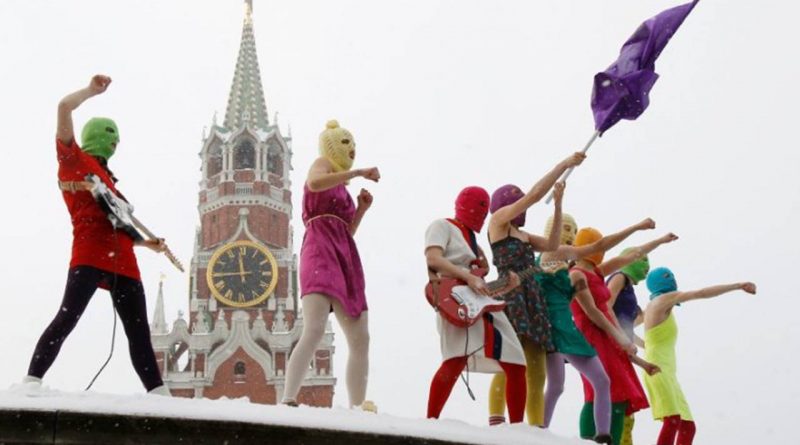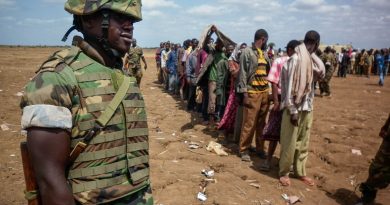Russia Carries out Sweeping Arrests Against Oppositional “Extremists”
By Aslana Soobzokov
Staff Writer
Russian police have arrested over 400 people who were protesting President Vladimir Putin in Moscow and St. Petersburg. The demonstrations are believed to be in connection to Russian politician Vyacheslav Maltsev’s movement to overthrow the Russian government. This movement has been declared extremist and is banned within the country.
Last year, Maltsev ran for a position in parliament and in a debate, he called for the impeachment of Putin. Since then, he’s spread his anti-Putin rhetoric through his popular YouTube channel, explaining his beliefs of Putin’s corruption, and other criticisms about the government. He recently declared that the imminent revolution would take place on November 5, 2017, which is the day that the mass protests and arrests took place.
November 5 was also a day after the Russian holiday Unity Day, introduced by Vladimir Putin early on in his term. This holiday serves as a successor to the former Soviet event celebrating the 1917 Bolshevik Revolution. Maltsev’s event may have overlapped with protests by nationalists who used Unity Day to stage marches against immigrants, according to The New York Times.
According to BBC News, an AFP photographer said the police were wearing helmets and bulletproof vests when confronting Moscow protesters. The protesters were seen carrying knives, knuckledusters, and rubber bullets, instruments that can be legally utilized for self-defense.
The New York Times reports that the movement that led to so many arrests, Artpodgotovka, or Art Preparation, urged followers to prepare for a revolution via online posts. However, prior to this rally, the posts were never taken seriously. Many of those who followed the instructions of the online posts simply roamed around in confusion before being arrested by officers.
Most of the arrests were made in the Russian capital but people were also detained in five other cities. A majority of the men detained across the country were in their twenties. Some of this demographic were believed to have been released soon afterwards without charge.
It is believed the “extremist” group convened by the Kremlin in central Moscow. According to France 24, political opposition leader Alexei Navalny, campaigning against Putin in the election next year, also called on his supporters to hold unauthorized anti-government protests. This is thought to have contributed to the volume of arrests that took place in the region in recent months.
Russia attempts to further limit access to radical opposition ideals by expanding their VPN ban law to include internet proxies, according to Tech Radar Internet proxies and VPNs allow users access to banned websites by masking their user’s physical location and IP address.
According to the Moscow Times, under the new rules, VPNs are required to be registered with Roskomnadzor, an organization tasked with regulating the state’s media. Proxies that are not registered will be blocked, therefore, limiting access to unauthorized websites. In addition to this, the ban requires online messaging platforms to be linked with phone numbers to block users that spread illegal information, adding to the efforts by the Russian government to limit the “extremist” influence.


